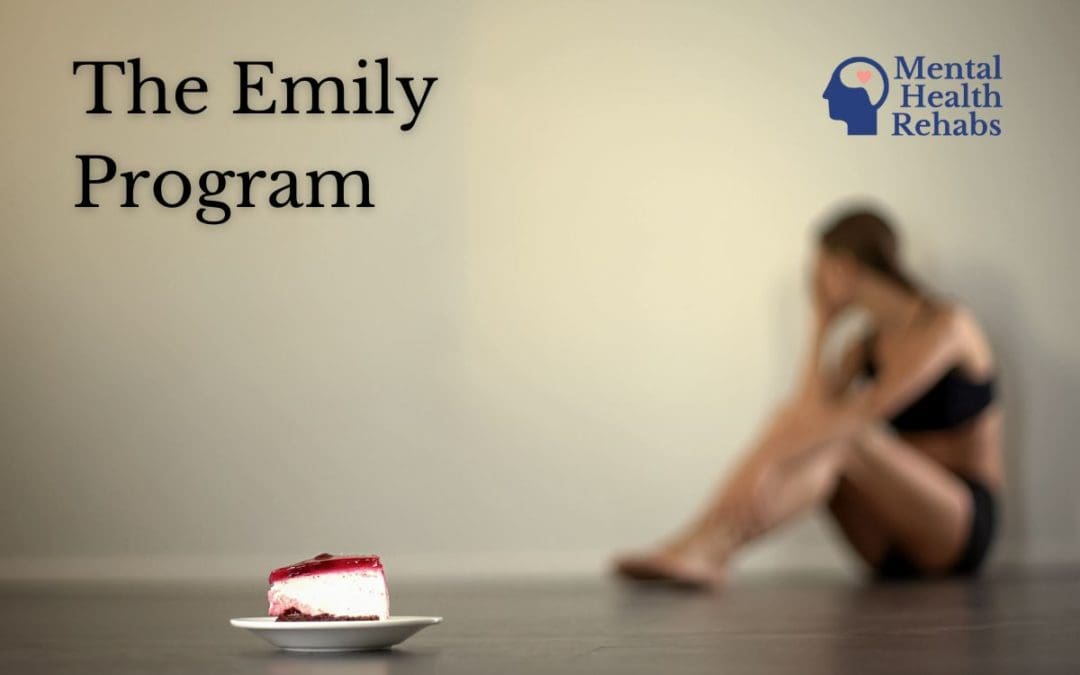Anorexia nervosa, bulimia nervosa, and binge eating are a few types of common teen eating disorders. They are also severe mental health conditions that can have long-lasting physical and emotional consequences. Eating disorders often develop during the teenage years and can be particularly difficult to overcome without treatment. Fortunately, there are places dedicated to doing just that. One of the most widely recognized and respected is The Emily Program.
What is The Emily Program?
Founded in 1993, The Emily Program is a recovery center that provides personalized treatment for eating disorders as well as body image and mental health issues such as:
- Anorexia nervosa
- Bulimia nervosa
- Binge eating
- Compulsive overeating
- Avoidant/Restrictive Food Intake Disorder (ARFID)
- Other Specified Feeding or Eating Disorders (OSFED)
- Eating disorders related to substance abuse, anxiety, depression, and trauma
Their expert team of therapists, dieticians, and medical staff are able to offer a wide spectrum of treatment from intensive in-patient care to outpatient and even virtual eating disorder treatment. Founded in St. Paul, Minnesota, The Emily Program has since expanded to offer treatment locations in Ohio, Pennsylvania, and Washington state with a total of 15 total locations.
Eating disorder treatment is available to adults, adolescents, and children of all genders. The Emily Project recognizes the importance of personalized, evidence-based treatment and crafts each treatment plan around the individual.
Why is it called The Emily Program?
The program is named after the founder’s (a psychologist named Dirk Miller, Ph.D., LP) sister. Her name is Emily, and she had (and eventually overcame) an eating disorder.
Who owns The Emily Program?
The parent company of The Emily Program is Accanto Health. It was founded in 2021 and is located in the same city where The Emily Program originated, St. Paul, Minnesota.
Is The Emily Program for profit?
The Emily Program is a private, for-profit company. However, in 2007 it launched The Emily Project Foundation (TEPF), a 501(c) (3) nonprofit organization committed to further awareness, education, and research about eating disorders. In 2008, this non-profit merged with the Anna Westin Foundation, allowing TEPF to expand its efforts and reach even further.
How do you treat an eating disorder?
Treatment for eating disorders typically involves a combination of approaches, including cognitive-behavioral therapy (CBT), family-based therapy (FBT), or interpersonal therapy (IPT); nutrition counseling; and medical intervention. The specific treatment plan will depend on the individual’s needs and the severity of their eating disorder.
It’s important to note that recovery from an eating disorder can be a long and challenging process. It is not a choice, but a medical condition like that of diabetes and it may involve setbacks along the way. It is important to have a supportive team of healthcare professionals and loved ones to help the individual through the process. With appropriate treatment and support, it is possible to overcome an eating disorder and lead a healthy, fulfilling life.
How common are eating disorders?
There are several types of eating disorders, all of which are characterized by some form of abnormal eating behaviors or a preoccupation with food, weight, and body image. According to the National Eating Disorders Association (NEDA), eating disorders are far more common than most people realize.
- Approximately 1% of adolescents in the United States have anorexia nervosa; 2-3% have bulimia nervosa.
- Binge eating disorder is the most common teen eating disorder, affecting approximately 1.6% of young people.
- Approximately 50% of teens with eating disorders meet the criteria for depression, and 25% of teens with eating disorders also have anxiety disorders.
- Eating disorders have the highest mortality rate of any mental illness.
Get Help Today
Anyone with an eating disorder should get help as soon as possible. This mental health condition can have serious and potentially life-threatening consequences. Early treatment can improve the chances of a full recovery and prevent long-term complications.
Some signs that a person may have an eating disorder include:
- Rapid weight loss or difficulty maintaining a healthy weight
- Preoccupation with food, weight, and body image
- Distorted body image or negative self-esteem
- Extreme concern about appearance and body size
- Avoiding social situations that involve food
- Excessive exercise or other unhealthy weight control behaviors
If you or someone you know shows any of these signs, urge them to talk to a mental health professional as soon as possible. With the right treatment program, it’s possible to recover from an eating disorder and lead a healthy, fulfilling life.
Sources:

